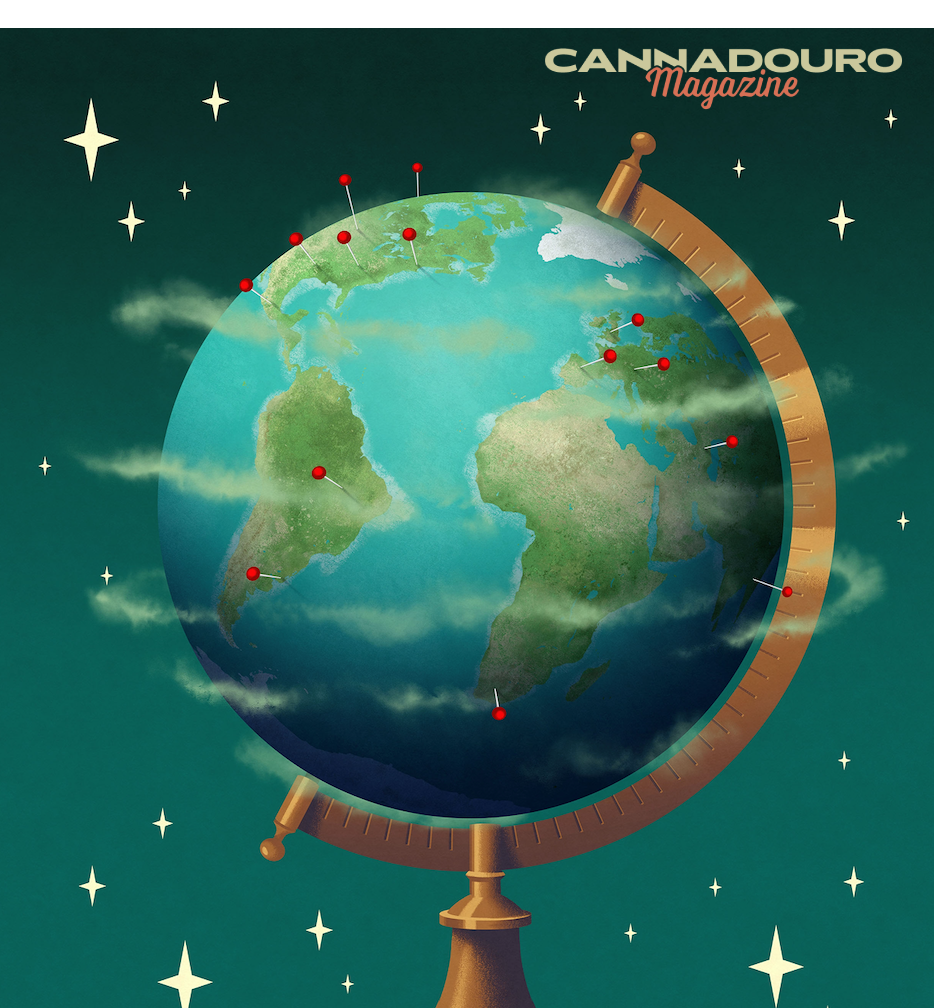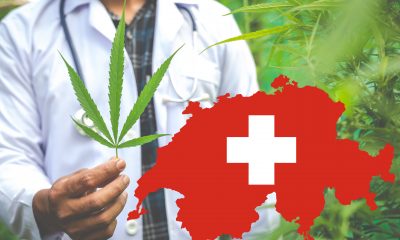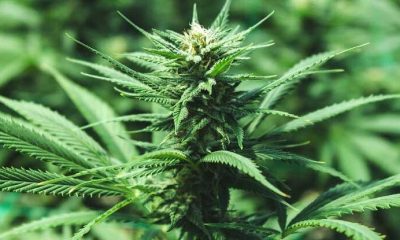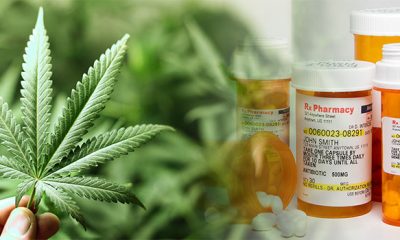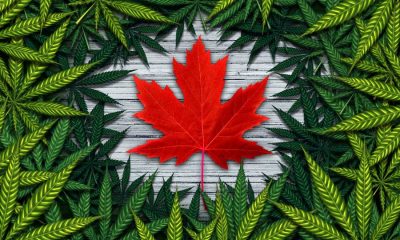The legalization of cannabis is an increasingly universal topic, with more and more countries catching the “green wave”, changing laws and creating specific regulations to allow the use of the plant. We took a virtual journey into the world of cannabis legalization, to understand where countries are in their relationship with this millennial plant.
*This article was featured on the cover of issue #7 da Cannadouro Magazine.
The pioneers: Uruguay and Canada
We start with the country that pioneered the legalization of cannabis, Uruguay, which in 2013 decided to break taboos and move forward with the complete legalization of cannabis. Medicinal use now allows the purchase of up to a maximum of 10g per week in pharmacies. With regard to personal use, cannabis can now be obtained through self-cultivation, with an authorization of up to 6 plants per household and a maximum of 480g per year, or through clubs and associations where a total of 99 plants can be grown per year. year, each member not being able to receive more than the aforementioned 480g per year.
Canada was the second country to defy UN international conventions and proceed with the legalization of adult use, in 2018. Medicinal use in the country has been legal since 2001. Depending on the type of purpose for which consumption is intended, laws in Canada may vary.
For personal use, any citizen considered of legal age can possess up to 30g of cannabis in public, and there is also an authorization for the manufacture of drinks and food with cannabis infusions, as well as the self-cultivation of up to 4 plants per dwelling. With regard to medicinal use, it is necessary to have a statement from a doctor in order to receive the patient card, which has to be renewed annually. The patient card has some advantages, such as having up to 150g of cannabis (in addition to the 30g for personal use). With regard to self-cultivation for patients, the number of plants and the maximum harvest limit will vary depending on the daily amount of grams prescribed and even if the plants are grown in outdoor, indoor or both.
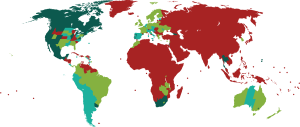
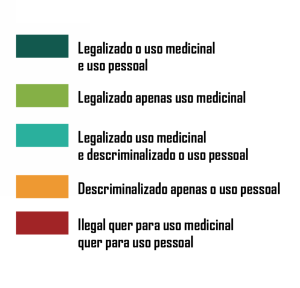
The unique case of the United States
Jumping to the country that originated the entire prohibition of cannabis, the United States of America (USA), despite the fact that cannabis remains illegal at the federal level, 41 of the 50 states have already legalized medicinal use, of which 19 have also legalized the adult or personal use. In four of them, the decision first went through decriminalization.
Due to the fact that cannabis is still considered illegal at the federal level, each state ends up having a certain amount of freedom to create its own legislation, which generates a multitude of different regulations across the country. These differences range from the quantities to be purchased to the number of plants allowed to have in self-cultivation. However, it is prohibited to cross state borders with any cannabis products, even if it is legal in both states.
This year, the bill entitled CAOA (Cannabis Administration & Opportunity Act) was presented in the Senate, whose main objective is to implement the legalization of cannabis at federal level, as well as to solve some of the difficulties that the current industry faces in the country, among other objectives, such as the release of citizens convicted of non-violent cannabis-related crimes.
Mexico inspires Central and Latin America, not forgetting the Caribbean
Crossing the most famous border in the world, we arrive in Mexico, which began with decriminalization in 2009 and later, in 2017, legalized medicinal use. In 2018, the process of legalizing personal use began, with an unprecedented decision by the Supreme Court of Justice, which ruled that the ban on “recreational” use was unconstitutional. In March 2021, a proposal for legalization was presented, which would be approved in June of the same year. Citizens of legal age are now able to purchase and possess up to 28g of cannabis. Self-cultivation of up to 8 plants per dwelling and the creation of spaces for consumption was also authorized.
With regard to the countries of Central America and the Caribbean, in most of them cannabis remains illegal, with the exception of countries such as Barbados, Jamaica, Puerto Rico, US Virgin Islands, Saint Vincent and the Grenadines, Saint Kitts and Nevis, Costa Rica and Panama, where medicinal use is already regulated. Personal use is decriminalized in Belize, Dominica, Jamaica, Saint Vincent and the Grenadines, Saint Kitts and Nevis and also Trinidad and Tobago, which, despite still maintaining illegal medicinal use, is discussing a bill in the Senate for its legalization since May.
Continuing our journey to the south of the American continent, the only place where cannabis is completely legal is Uruguay. With the exception of countries such as Guyana, Suriname, French Guiana, Bolivia, the Malvinas Islands and Venezuela, where any use of cannabis is still illegal, all the rest, such as Colombia, Peru, Brazil, Chile, Argentina and Paraguay, already have medical use. regulated in some way. In Ecuador, there is also legal access to cannabis for medical use, although only products made from hemp and limited to 1% THC. Colombia and Costa Rica have recently expressed their intention to move towards legalizing adult use.
In addition to the vast majority of countries in South America having legalized medicinal use, all those that have already done so have also advanced with decriminalization policies with regard to personal use, especially linked to possession of small amounts. Of the South American countries where cannabis for medicinal purposes is still illegal, only Venezuela has decriminalized possession of up to 20g.
Australia and Oceania
Going to Oceania, practically all countries keep cannabis illegal, with the exception of Australia, where medicinal use is legal throughout the country since 2016, and New Zealand, where cannabis was allowed as a medicine in 2019. a referendum was held on the legalization of personal use in New Zealand, where about 2020% of voters were against it, thus keeping adult use illegal in the country. In Australia, personal use is still illegal at the federal level, but in the territory of the Australian capital, Canberra, personal use was authorized in 51, allowing possession of up to 2019g and self-cultivation of 50 plants by citizens of legal age. The sale, sharing and giving away of cannabis products, including seeds, are however considered illegal.
The paradoxes of the Middle East and Asia
Going to the Middle East and Asia, which according to some studies is considered the continent where cannabis was first "domesticated" by humans, cannabis is considered illegal practically everywhere, with only 3 countries that contradict this current.
One is Israel, a country that has been a leader in the field of scientific research with the plant, with its medicinal use being legalized since the late 90s. As far as personal use is concerned, it has been decriminalized since 2019 and it is believed that Israel is also one of the countries where legalization is close to happening.
Moving further east, it becomes increasingly difficult to find countries where cannabis is already regulated in some way. But there is one country that surprised the world by radically changing its cannabis policies: Thailand. It legalized medicinal use in 2018, having authorized personal use in June 2022, by removing both cannabis and hemp from the list of narcotic substances in the country. In addition, the Minister of Public Health declared four varieties of cannabis as national genetic heritage and distributed one million plants to its inhabitants, in an attempt to revitalize the local economy and encourage farmers to plant cannabis. Despite its legalization, the consumption of cannabis is not allowed in public areas, being limited to private areas, and each family can grow up to 6 plants at home.
In South Korea, the legalization of medicinal use took place in 2018, but personal use remains illegal. Countries like the Philippines or Singapore maintain radical legislation regarding cannabis, even providing for the death penalty for cannabis trafficking.
For its part, Malaysia has been attentive to the case of Thailand, with the Malaysian Minister of Health visiting the neighboring country, on a journey to learn from the Thai experience.
Investments in the cannabis industry also reach Africa
In Africa, cannabis is also largely illegal, with the exception of South Africa, where both medicinal and personal use are already regulated. However, the law states that consumption on a personal level can only be done in private and never in the presence of minors and/or other adults who are not in favor. With regard to possession, South African law states that each person can carry 100g on public roads, but, if you are in a private place, the amount can rise to 600g. There are also four other African countries that deviate from the norm and where it is possible to access medicinal use: Malawi, where medicinal use has been decriminalized since 2020, Lesotho, which legalized its use in 2017, Zimbabwe in 2018 and Rwanda, in 2021.
In Morocco, one of the countries where cannabis cultivation is considered ancestral and an essential source of income for the country's economy, cannabis is still considered illegal. In 2021, the use and cultivation for medicinal, cosmetic and industrial purposes was approved, but the situation is not very clear and all legal production ends up being directed exclusively to export.
Europe on the crest of the green wave
This is how we arrive in Europe, where 27 countries have already legalized medicinal use, but only Malta has actually admitted recreational use, at the end of 2021. In Malta, it is possible to transport up to 7g of cannabis flowers and self-cultivation is allowed up to 4 plants per dwelling. It is also allowed to create associations, which can grow cannabis to distribute to its members up to a maximum of 7g per day and 50g per month.
There are also two countries that have announced pilot projects for the legalization of personal use, Switzerland and Luxembourg.
In many other countries, personal use, despite being illegal, ends up being practically decriminalized, with some laws being more open than others. In Holland, which is world famous for its coffee shops, and in Spain, also famous for its Social Clubs and Associations and for the permission to self-cultivate up to 2 plants for own consumption, the legislation is not clear, existing a kind of gray zone or generalized civil disobedience.
Although personal use in Spain is apparently allowed, the truth is that our brothers contain an enormous paradox: Spain is the country in Europe that penalizes consumption the most, with around 43% of penalties applied across Europe related to cannabis. With regard to medicinal use, this was considered “illegal”, and doctors were not allowed to prescribe cannabis. However, the medical cannabis law was recently approved, and it is expected that by the end of the year products for medicinal use will begin to appear in pharmacies.
One of the countries that has attracted a lot of attention on the issue of legalizing personal use is Germany, where the current government coalition has committed to legalizing adult use. One of the biggest doubts, however, lies in when this will actually happen. Some point to 2023/2024, others extend this event to 2026. What most believe, however, is that with full legalization in Germany, the domino effect in the rest of Europe will be inevitable.
In the United Kingdom, where cannabis for medical purposes has been regulated since 2018, there has also been talk about the possibility of legalizing personal use, but still without major concrete advances.
In France, the country that is said to have more consumers per capita, there is a very strict policy regarding personal use and, despite having legalized medicinal use in 2013, access is also quite restricted. In March 2021, a 2-year trial program was launched, providing free cannabis-based treatments to a group of 3 patients. Recently, a group of French senators committed themselves to the proposal to create a law for the total legalization of cannabis in the country.
Also Italy, where medicinal use is legal since 2013, has been actively trying to change its policies regarding cannabis, having recently restarted discussions on legalization with the most recent proposal that was presented, which includes self-cultivation up to 4 plants.
Ending our journey in Portugal, which in 2001 became the first country in the world to decriminalize not only cannabis but also other drugs, we find a big question mark. In 2018 Portugal legalized medicinal use, although there is still very restricted access, both in terms of available products and in terms of pathologies for which cannabis can be prescribed.
With regard to personal use, in June a new bill was submitted by the Bloco de Esquerda for legalization, which is expected to go to the vote in the Assembly of the Republic during the month of September. Although it is impossible to predict any result, looking at the latest proposals that were presented and that managed to be discussed in the specialty, many believe that legalization is getting closer and closer to happening.
And so ends our little tour of the world of cannabis legalization which finally, in the 20s of the XNUMXst century, is leaving behind a history of decades of prohibition and misinformation. With more and more countries around the world legalizing the medicinal and recreational use of cannabis, the stigma is being broken, prejudice is being clarified and one of the oldest plants on the planet is being released.
